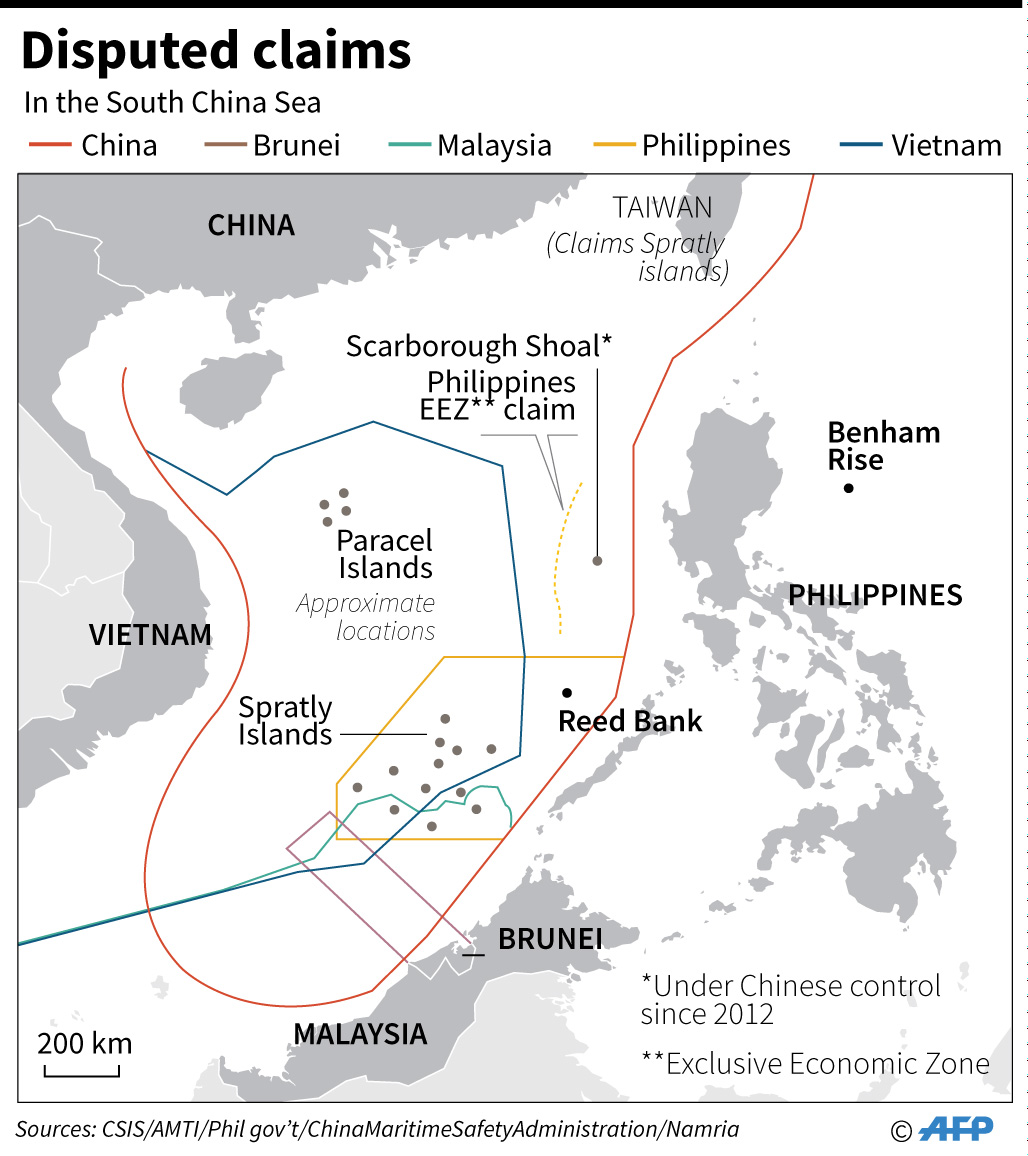
Map showing disputed claims in the South China Sea. Includes locations for Reed Bank and Benham Rise, where Chinese survey ships were seen last year, according to the Philippine government. AFP
The Asean-Australia joint statement released at the end of the recently held summit in Sydney voiced out its “strongest position” yet against the threatening acts in the South China Sea, a political analyst said.
“The joint statement of the Asean-Australia Special Summit signed by member-heads of state aired the strongest position against aggressive acts in the South China Sea,” Stratbase Group founder and managing director Dindo Manhit said in a statement Thursday.
He added that the joint statement, otherwise known as Sydney Declaration, “raised the level of regional cooperation amid a changing geopolitical environment where the Philippines is a major stakeholder.”
The declaration scored “the importance of non-militarization and the need to enhance mutual trust and confidence, exercise self-restraint in the conduct of activities and avoid actions that may complicate the situation.”
There was no direct reference to China in the statement, despite its apparent militarization in its artificial islands at the Spratly Islands in the South China Sea.
“We reaffirm the importance of maintaining and promoting peace, stability, maritime safety and security, freedom of navigation and overflight in the region,” the declaration read.
They also advocated the full and effective implementation of the Declaration on the Conduct of Parties in the South China Sea, and stressed the importance of “an early conclusion” of a Code of Conduct in the strategic waterway.
“Asean’s unequivocal support for the Code of Conduct in the South China Sea and non-militarization springs a new momentum for the government and a strong message against actions that run counter to building regional trust and confidence,” Manhit said.
The two-day high-profile event was attended by head of member-states of Australia and Asean countries, except for Philippine President Rodrigo Duterte.
Manhit also lauded the “strategic partnership” of Australia and Vietnam, which covers political cooperation, defense and security, economic development, among others.
“The Joint Statement on the Establishment of a Strategic Partnership between Australia and Vietnam shows how two nations with different political systems are able to build respect and shared interests that have become a model for bilateral cooperation that is aligned with the strong pronouncements of the Asean-Australia Special Summit,” he said. /jpv
RELATED STORY
EXCLUSIVE: New photos show China is nearly done with its militarization of South China Sea

